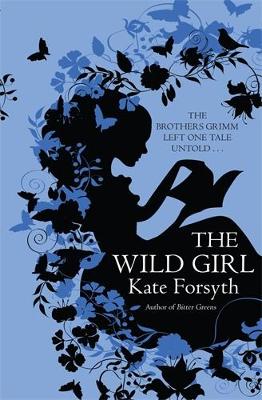
Briana @ Pages Unbound
Written on Apr 3, 2015
Marketing is hyping up the fairy tale aspects of the novel, but they are actually somewhat understated in the story itself. Dortchen herself rarely demonstrates a personal interest in the stories. She claims to have enjoyed them as a child, but during the novel uses them primarily as excuses to flirt with Wilhelm, as he is collecting old local stories for a book. She draws a clear parallel between herself and a fairy tale only once, but Wilhelm later uses it better, as if he is, contrary to all Dortchen's claims, he is the one who understands the value of a good story best of all. Additionally, fairy tales are more often alluded to than retold in the novel, which is probably fun for readers who understand the allusions, but may be frustrating for readers who are not and want to be let into the club.
Much more emphasis is placed on the romance of the novel. For a long while, however, the "romance" is really just Dortchen's hopeless crush on Wilhelm. It begins early, both in the book and in her life, which means that for a large chunk of the novel the audience has no way of knowing this is supposed to be serious, that it is something to be invested in, not a childish infatuation that will eventually go away. Unfortunately, the summary/book jacket have to do the work of telling the audience this is important, because the story itself does not. Once Wilhelm confesses his love for Dorothea, they go pretty quickly to making out, which may be a disappointment for readers who want more romantic tension in the form of an actual courtship.
Historical events also form a large part of the novel. Often, but not always, the lengthy explanations of what armies are moving where are related to what happens in the lives of Dortchen and her family. These passages sometimes bog down the pace of the story.
The story, however, does successfully manage a large cast of characters. Dortchen and Wilhelm both have large families, and eery single sibling and parent gets their fair share of screen time. Everyone is developed and complex. Readers may easily find that their favorite character is not one of the protagonists. This also means there are a few side romances, some of which are more romantic and some less than Dortchen's and Wilhelm's. This may all be a result of more historical research on Forsyth's part, but she does put in the effort of managing all the characters and their details.
The Wild Girl has a lot of positive reviews. It is obviously a successful novel with lots of fans. However, I found it tries to do too much and ends up a bit flat and muddled as a result. I like the idea but think the execution can be improved.
